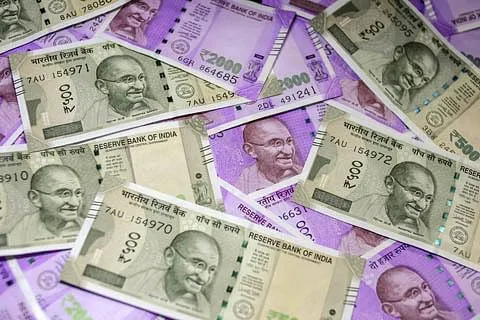Srinagar: The Jammu and Kashmir government has allocated a substantial funding of Rs 7097 Cr in budget 2023-24 to develop a strong ecosystem for the cities, towns and villages focusing on urban-rural partnership in the Union Territory.
Besides the implementation of ambitious Aspirational Panchayat Development Programme (APDP) and Aspirational Town Development Programme (ATDP), this envisioned ecosystem will also help realise the dream of elevated light metro rail in the capital cities of Jammu and Kashmir.
As per budget document, this innovative partnership will enhance market and business opportunities, job creation besides filling gaps in the education system to ensure sustainable economic development in rural and urban pockets of the Union Territory.
The government has also earmarked funds for new Townships and Housing Colonies for Economically Weaker Sections (EWS) or low income group and middle income group at Jammu and Srinagar.
As a part of this ecosystem, to empower and facilitate the marketing of products of women entrepreneurs, the government will establish Ladies Haat and Ladies Exclusive markets in Jammu, Srinagar and other major towns besides creation of EKTA malls.
Officials maintain that the implementation of Panchayat Development Index helps in developing and replicating best practices that drive improvement across the socio-economic themes of Panchayats under newly approved Aspirational Panchayat Development Programme (APDP).
“The identified Panchayats are given special focus to saturate inclusive development schemes which would serve as model Panchayats,” an official said. He added that the J&K government had selected the most backward 285 Panchayats (one Panchayat per Block) under APDP for holistic development.
The government has also allocated funds for constitution of 1500 new Panchayat Ghars to be constructed under “Har Panchayat-Panchayat Ghar” initiative for smooth implementation of welfare programmes of government at grass-root level besides Rs 1313 crore provided for PRIs and ULBs and Rs 271.25 crore for DDCs and BDCs.
Similarly, the Jammu & Kashmir Municipal Development Index-2022 helps in rating, assessing and analyzing the performance and level of development of various municipalities or towns of the UT. “The urban reform incentive fund is meant for providing reform linked assistance to the Urban Local Bodies (ULBs) of the UT based on the performance as per the benchmarks prescribed under The Jammu and Kashmir Municipal Development Index-2022,” the official shared.
According to the Budget document, 40,000 new houses for houseless families under Pradhan Mantri Awas Yojana – Gramin (PMAY-G) would be constructed, 18934 dwelling units would be completed under Pradhan Mantri Awas Yojana – Urban (PMAY-U) and new 87,350 Individual Household Latrines (IHHLs) and 2500 Community Sanitary Complexes (CSCs) would be constructed.
The budget has also been earmarked to declare all the villages and ULBs Open Defecation Free plus (ODF plus) status.
Notably, several Municipal bodies including Municipal Councils and Municipal Committees of Jammu division have self-declared as Open Defecation Free plus status after complying with all bye-laws and development done in Municipal limits as per the Swachh Bharat Mission norms.
“Under initiative of “Har Gaon Ek Amrit Sarovar”, 4041 Amrit Sarovars have been identified, out of which, 2420 have been completed and remaining will be completed before August 15, 2023. Besides, elevated light Metro rail in capital cities of Jammu and Kashmir will be rolled out,” he said.
Meanwhile, Rs 50 crore have been earmarked for Samridh Seema Yojina for development of border areas.
To provide employment avenues and handhold youth in setting up their enterprises, 10,000 further Self Help Groups (SHGs) will be formed under the Budget of 2023-24.
For restoration and conservation of Dal lake, sewage management of Dal lake will be accomplished with installation of 89.83 MLD Sewage Treatment Plants (STPs) meant for benefitting 6, 20,565 people.
Promotion of the circular economy and the scheme for disposal of electronic waste will also be the part of this ecosystem to further rural-urban partnership in the UT.







